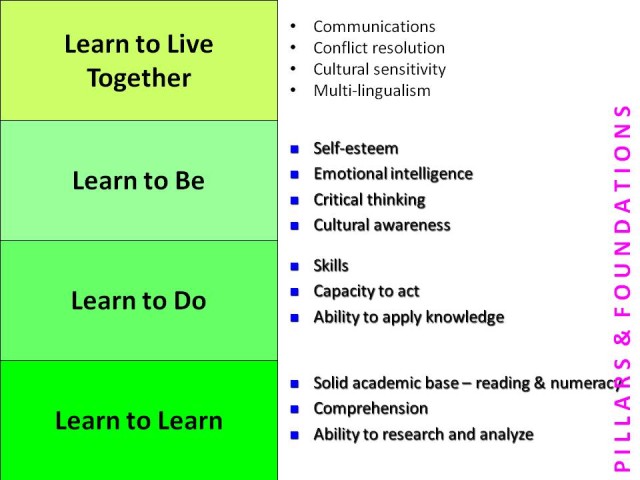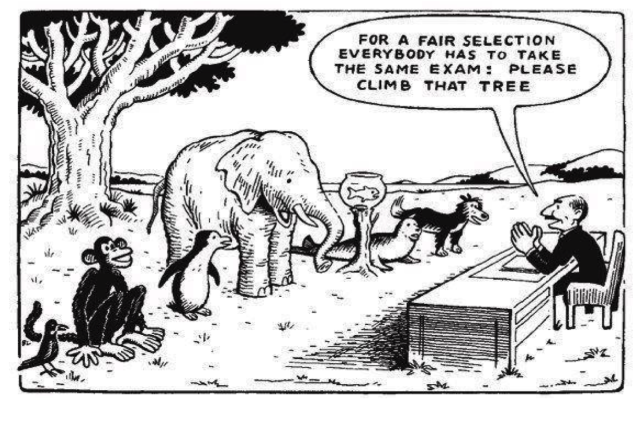By Roshni Kaur
Two weeks ago, I had attended a seminar called ‘Young Leaders Programme’, by ISB in which a student asked a question, “How is the placement of the college?”, and the speaker replied quietly that “we don’t provide placements, we only teach management.” With the answer, the entire hall reverberated with the laughter of audience but I went under a deep thought that is this just a joke or a satire on the Indian Education System?
When we hear the word “brain drain”, the first thing that comes in our mind is the NRIs who left the nation and get settled in abroad. But what about the Indian students who used to go west for higher studies? The staggering statistic is that studying abroad costs $17 billion annually to Indian students. Isn’t this “brain drain”?
The basic thing that differentiates the two education systems is the skill acquiring approach in West versus the knowledge acquiring approach in India. No doubt students in India routinely score higher marks in Mathematics and Science along with China. But the basic query is that, do they study just to score marks and to crack exams like IIT-JEE, AIIMS or CAT?
In the past ten years, India has remarkably improved its educational level. After the exercise of Right to Education Act, India has improved both the primary education attendance rate as well as the overall literacy rate. It is often cited that Indian Education System is the main contributor to the economic rise in India. As per Annual Status of Education Report (ASER) 2012, 96.5 percent of all rural children between the ages of 6-14 were enrolled in school. But despite all these going forward, India will need to focus more on quality.
If we observe carefully, what the west is doing is the same as we Indians used to do 200 years ago in Gurukul. In gurukul, anyone who wished to study went to a Guru’s house and stayed with him as long as he wished or the guru felt that he had taught everything he could teach. At that time students learnt whatever they wanted to learn, from Sanskrit to Holy Scriptures and from Mathematics to Metaphysics. This not only taught the basic knowledge about subject and life but also created a strong bond between student and teacher. Today’s education system lacks these fundamental qualities that were originally ours.
Today what I have observed is that the Indian Education System is geared towards testing knowledge as opposed to teaching skills. Here the best crammer of a test is rewarded. Most of the students in India apply to Management Schools right after their graduation. What I am not able to understand is how they can become managers and CEOs without doing business. When I was browsing for good management colleges abroad, I was shocked when I found out that their basic criterion for admission is a minimum of two years of work experience (which none of the top Indian management schools requires). I have realized that this approach not only improves the quality of understanding and analysis of the subject matter but makes them better among others. But unfortunately in India no one feels such a demand for the course. Even students are more concentrated towards gathering degrees (mainly due to peer pressure) rather than gathering skills.

It is truly said that “Give a man a fish and you feed him for a day. Teach him how to fish and you feed him for lifetime”. Our education system is doing the prior one while the latter is found in the west.
It is not that India lacks talent. The CEO of Google, Eric Schmidt announced that Indian entrepreneurs have the “ability” to build the next Google if India “plays its cards right”. Today there is 256 percent increase in the number of students studying abroad. To prevent this “brain drain” from occurring and keep its brightest students within its border, India needs to revisit the ways in which it promotes education. Creativity, original thinking, research and innovation should all be cultivated and encouraged from a young age. The mentality of high scores should be removed first and this is not duty of the government or the educational institutions only but the parents, society and students as well. The new slogan should be “Save education, Save India”.

































